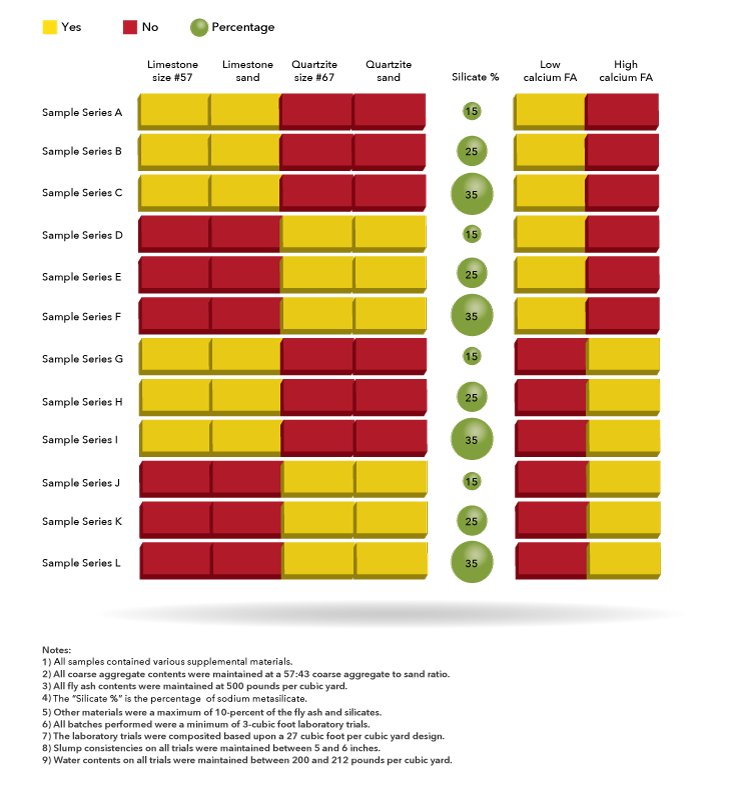Durability
A CONCRETE ANSWER FOR YOUR PROJECT QUESTIONS.
Exhaustive research has gone into producing a viable alternative to Portland cement. Over 4,000 experiments using hundreds of different ingredients have been tested over several years on a quest to design mixtures that would outperform and outlast traditional concrete.We have discovered that materials consisting of Class C fly ash and ground granulated blast-furnace slag (GGBS) increase strength significantly, reaching levels as high as 20,000 pounds per square inch.
Geopolymer Concrete VS Portland Cement Concrete
GEOPOLYMER CONCRETE
-
Resistance to freeze and thaw cycling Freeze and Thaw
-
High chemical resistance Acid Resistance
-
Strength development time can be greatly reduced. The ultimate strength can be achieved within about 2 hours using electrical treatment, 4 to 6 hours using heat and 28 days with normal curing
-
Supports an insulating R-value as high as 8 per inch of material when cellular mixtures are utilized
-
Dynamic and designer selected modulus properties Modulus
-
Faster or slower set times, which are operator determined Time of Set
-
Has an extremely low air and water permeability (unless a permeable mixture is requested) RCP
-
Withstands extreme heat without degradation
-
Volume change (shrinkage) is reduced to a negligible amount Shrinkage
PORTLAND CEMENT CONCRETE
-
Susceptible to freeze and thaw cycling
-
Susceptible to low pH material attack
-
Limited methods to expedite strength development
-
Limited insulating properties
-
Typical and difficult to change modulus properties
-
Limited set times
-
Some control on permeability
-
Extreme age degradation and carbonation when heated
-
Volume change is difficult to control with ASTM specifications

